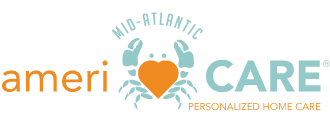Keeping your loved ones safer at home during COVID-19
Mid-Atlantic is special to us. Keeping our community, caregivers, and clients safe is our highest priority. We are committed to going above and beyond to keep your loved ones safer at home.
We use the CDC, WHO, and local and federal officials to create our guidelines.
What We Have Implemented
What We Ask of Our Clients
- ask that they provide proper cleaning/sanitation products that their caregiver can use at their home to help
- take into consideration the people you will be in contact with because they will then also be in contact with your caregivers
- call the agency immediately if signs/symptoms change and/or if you or someone you have been in contact with has Covid-19
What We Ask of Our Caregivers
- take into consideration the people you will be in contact with because they will than also be in contact with your clients
- call the agency immediately if signs/symptoms change and/or if you or someone you have been in contact with has Covid-19
- follow all recommendations provided by Mid-Atlantic
- help properly sanitize and disinfect the caregiver’s home
For Updates
CDC:
www.cdc.gov/coronavirus/2019-nCoV/index.html
State Officials:
coronavirus.maryland.gov
Baltimore County Public Health Information:
www.baltimorecountymd.gov/covid-19/
Carroll County Health Department:
https://cchd.maryland.gov/covid-19/
Harford County Health Department:
https://harfordcountyhealth.com/harford-county-covid-19-data/
Howard County Health Department:
https://www.howardcountymd.gov/
COVID-19 Hotline 410-887-3816

Tips from the CDC:
Additional Resources
Updates from CDC:
https://www.cdc.gov/coronavirus/2019-nCoV/index.html
Updates from WHO:
https://www.who.int/emergencies/diseases/novel-coronavirus-2019/advice-for-public
Federal Updates:
https://www.usa.gov/coronavirus

